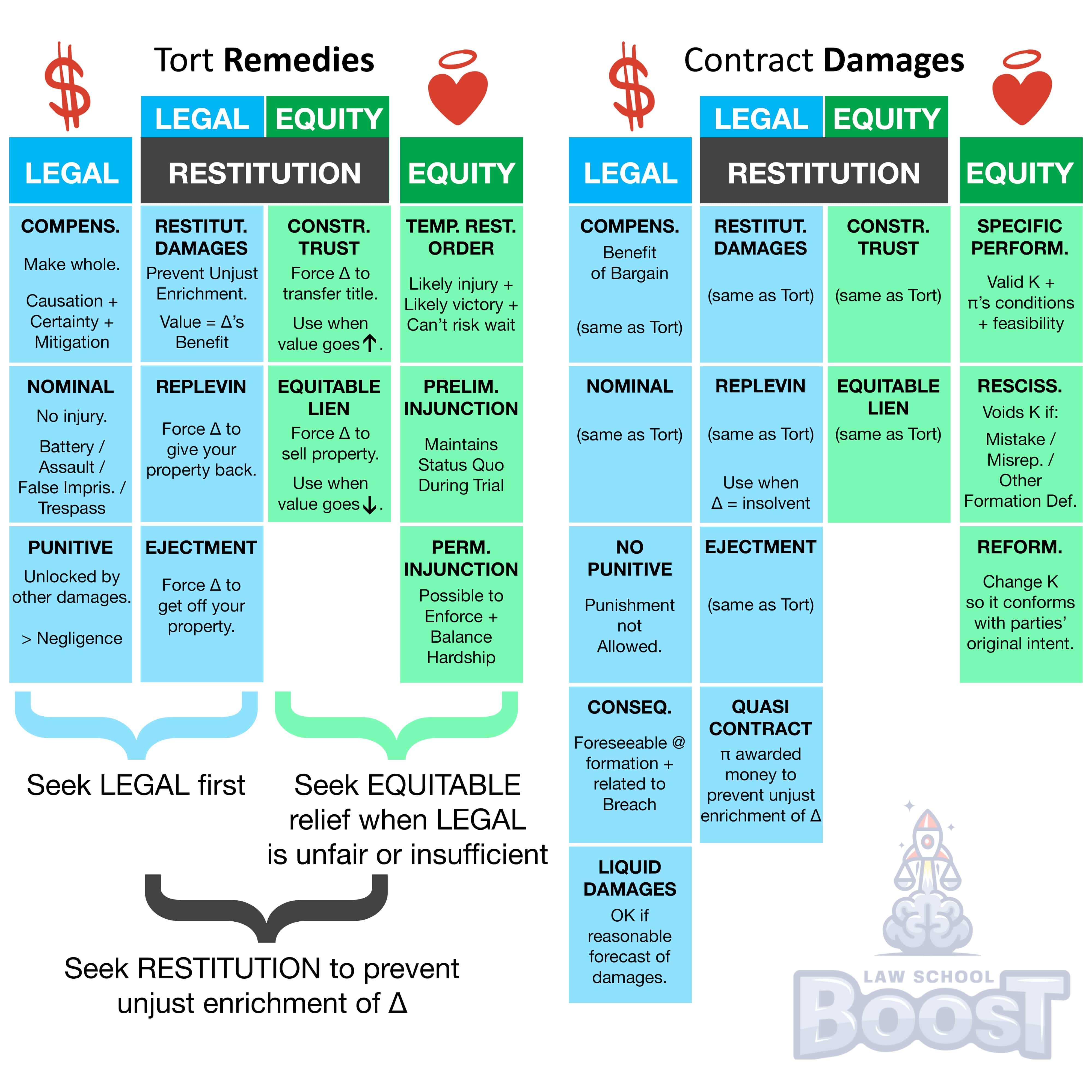🏥
Remedies • Contract - Restitutionary Remedies
REM#048
Legal Definition
Contracts are typically unenforceable due to mistake, lack of capacity, the Statute of Frauds, or due to illegality.
In such cases, the plaintiff can recover the value of the benefit conferred on the defendant (i.e., money or services) or can seek to recovery property if it is unique or the defendant is *insolvent*.
In such cases, the plaintiff can recover the value of the benefit conferred on the defendant (i.e., money or services) or can seek to recovery property if it is unique or the defendant is *insolvent*.
Plain English Explanation
Contracts are agreements between two or more parties that are legally binding. However, sometimes, these contracts can't be enforced by law. This can happen for a few reasons:
Mistake: Both parties got something wrong when making the contract.
Lack of Capacity: One of the parties wasn't in the right state of mind or was too young when agreeing.
Statute of Frauds: Some contracts need to be in writing to be valid.
Illegality: The contract involves something illegal.
If a contract is unenforceable for these reasons, the person who suffered can get back the value of what they gave (like money or services). If they gave something unique or the other person can't pay back, they can ask for that specific item back.
Mistake: Both parties got something wrong when making the contract.
Lack of Capacity: One of the parties wasn't in the right state of mind or was too young when agreeing.
Statute of Frauds: Some contracts need to be in writing to be valid.
Illegality: The contract involves something illegal.
If a contract is unenforceable for these reasons, the person who suffered can get back the value of what they gave (like money or services). If they gave something unique or the other person can't pay back, they can ask for that specific item back.
Visual Aids



